Phase 1: Anger
Growing up, I avoided cameras and family photos like the plague.
My house was littered with photo albums filled mostly with people I knew little about. Every holiday and birthday and anniversary tens of people decades older than me would gather around and look at these photos for what felt like hours. Every occasion and non-occasion has always been dominated by digital cameras, camcorders, and later, iPhones. I couldn’t do anything without a camera being pointed at me. It felt like the cameras were the main thing separating me from the people behind them.
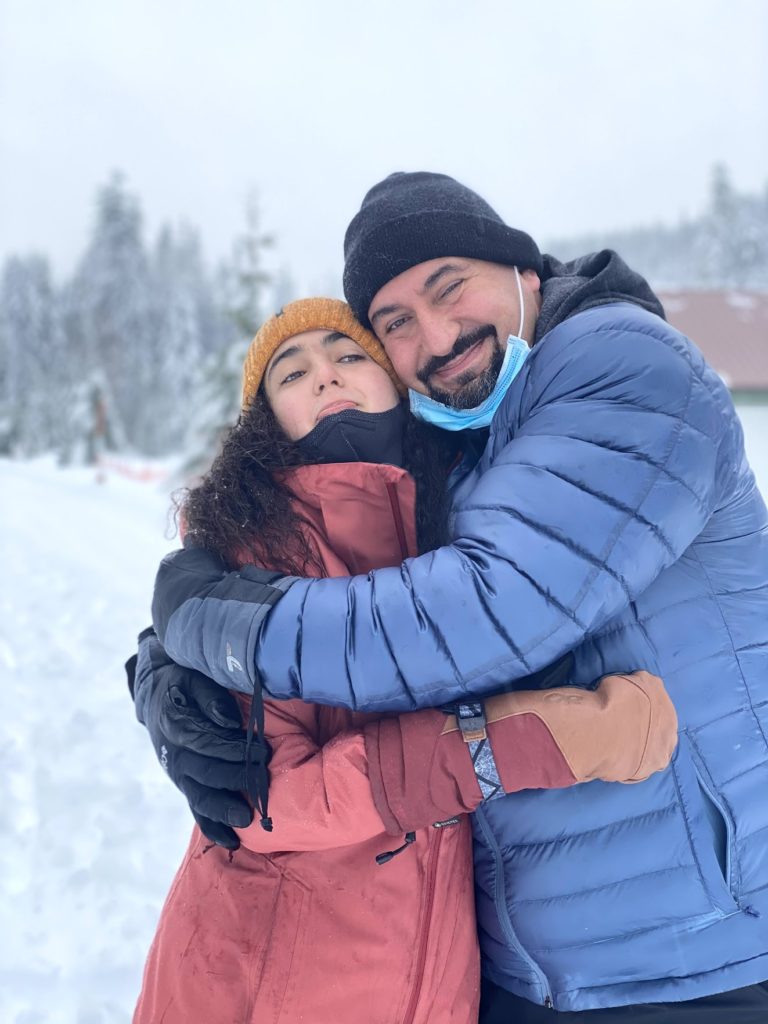
Phase 2: Denial
That began to change in my sophomore year of college, when I took a course on the Israeli-Palestinian conflict. When they were around 18 years old, my parents came to America from the USSR, where Judaism was a crime. I grew up hearing about the violence and fear that dominated their childhoods. Naturally, when they came here, Judaism became the most important thing in their lives. They enrolled me in Jewish school, Jewish summer camp, and several Israel-advocacy groups. Though I was always hell-bent on challenging all of their decisions and questioning all of my beliefs, Zionism felt more like a genetically inherited trait than a belief. When I enrolled in the course, I was so confident in my perspective that I challenged myself to end the semester de-radicalized.
In my first class I met Philip. His grandparents came to Lebanon as Palestinian refugees and his parents came to Boston to escape the Lebanese Civil War. I had never heard this side of the story. When my photojournalism professor told us we would be creating a short documentary for our final, I knew exactly what my subject would be.
As I learned more about Philip and his family, I realized we are more similar than we are different. Both of our families have run from persecution. Both of us feel all the grief and pain our predecessors suffered. Both of us feel a deep connection to the same land despite never having lived there. Both of us are the product of generational trauma. I heard my parents’ stories of violence and fear in his parents’ childhoods. I heard my parents’ pride and their bootstraps mentality in his parents’ immigration to America.
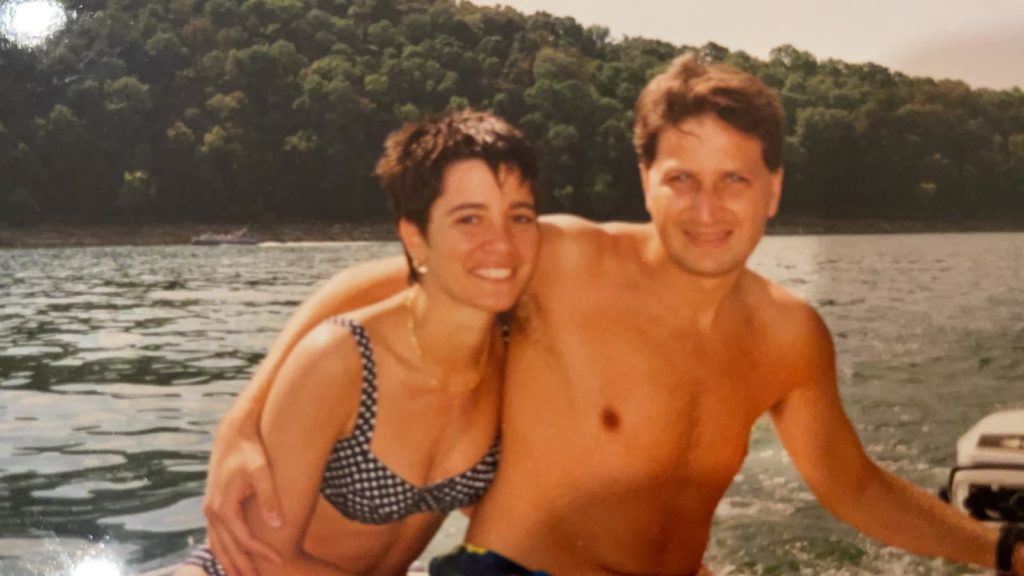
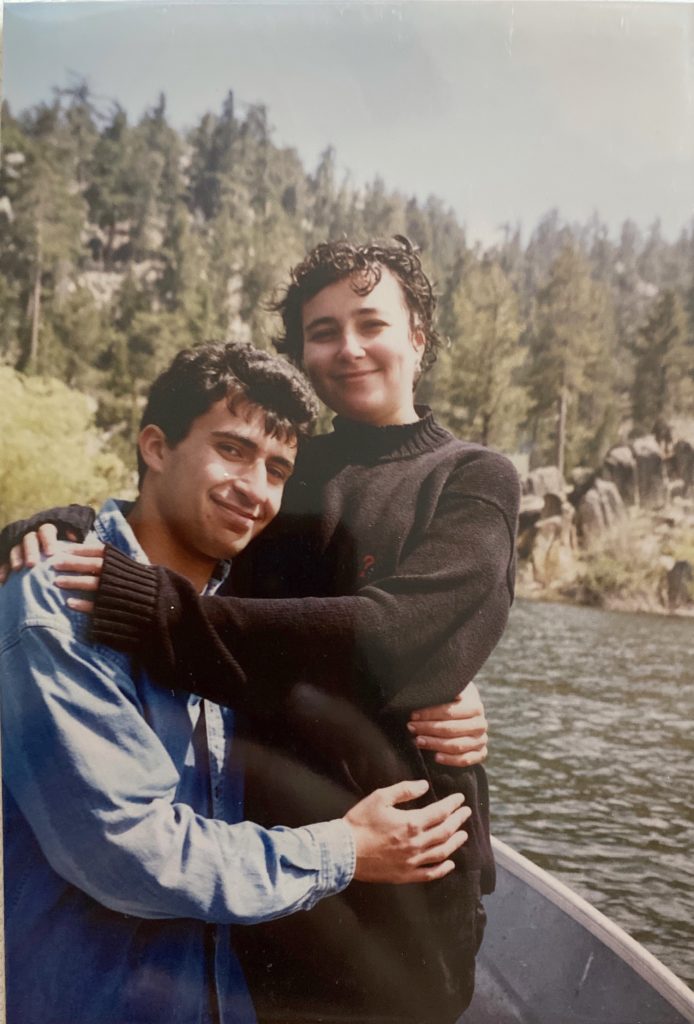
Part of what made Philip’s family’s story so exciting to tell visually was their extensive archive of family photos. His dad kept analog film footage of his childhood in Lebanon and religiously filmed and photographed his family’s life in America. This was another thing Philip and I had in common–we were both sick and tired of having cameras pointed at us every second of every day.
Philip’s childhood looked a lot like mine, right down to the food, the dancing and the decor of his home. If it weren’t for the lack of kippot, I would have guessed his family was Jewish. As I looked through his family photos, I began to see their storytelling value; I saw that they did more than capture a moment–they spoke to family, culture, and the broader truths of the world. These photos told stories of generational trauma, of what it means to be an immigrant, of the commonalities shared even between those on opposite sides of one of the most divisive conflicts in history. When I looked at my family photos the following summer, I realized they, too, connected me to something larger than myself.
Phase 3: Acceptance
That summer was also when I began noticing my grandmother’s memory starting to go. It was nothing major, there was no diagnosis, but she had raised me and I knew her well enough to notice the way she got frustrated and confused more often and ordinary tasks took her a bit longer than usual. I began asking her about her life every chance I got in an effort to delay the inevitable. That’s when I noticed that my grandma had begun to speak in photos.
When I asked her if she had a favorite birthday, she smiled and told me she had a photo on her coffee table of her, my sister and me. She couldn’t remember what birthday it was or much of what happened that day, but she described the photo in vivid detail. We were standing in front of a bougainvillea bush in a seaside restaurant in Malibu. My sister was practically a newborn, and Grandma cradled her in her arms. She liked that she was young enough to hold my sister and my sister was young enough to be held.
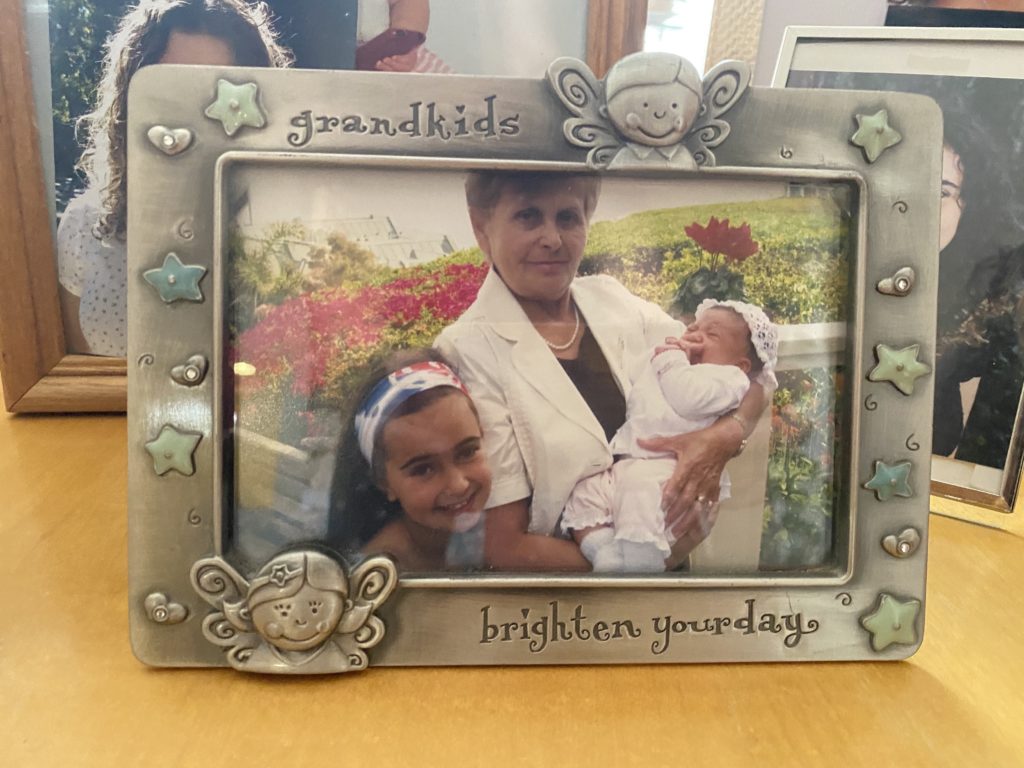
When she looked through photos of her friends and family and her many adventures all over the world, though she couldn’t remember many of the details, she smiled like the sorely-missed faces in the photos and spoke of happier times. She remembered that she wasn’t always frustrated and confused; there were times when she smiled for pictures and lived life to the fullest, and she could always return to those times by peeling open the sticky plastic pages of her photo albums.
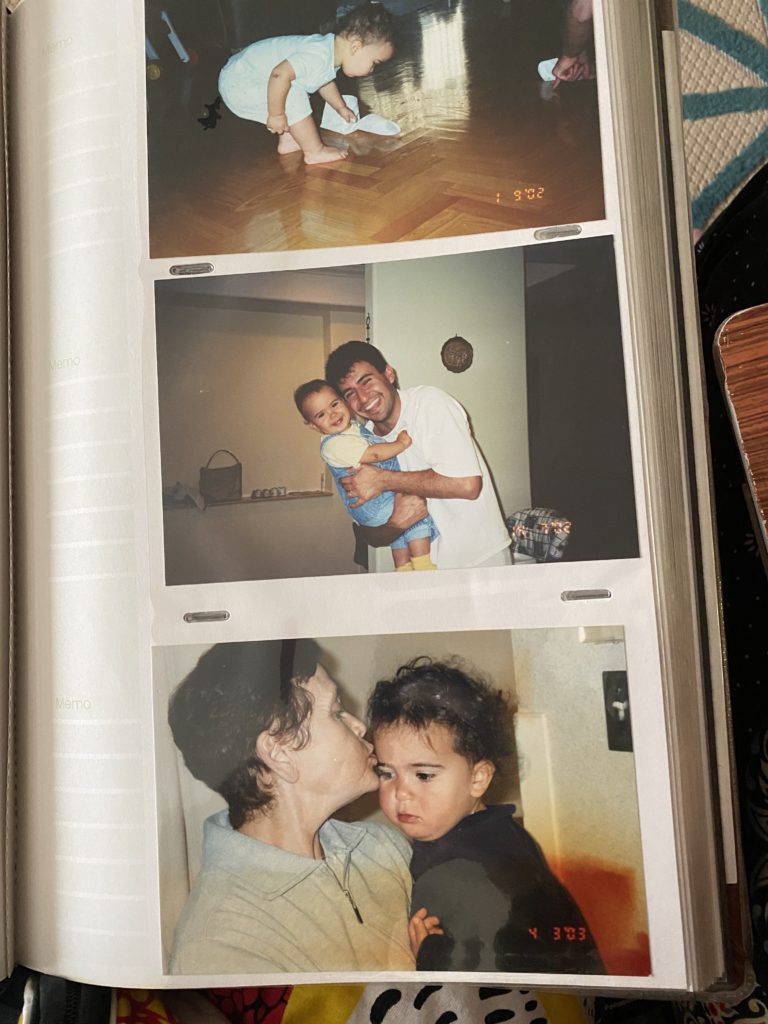
Through Philip’s family and my grandmother, I saw that my family’s cameras weren’t separating me from the people behind them, but strengthening my connection with them and those beyond the boundaries of space and time.


Beautiful story and beautifully written. Since I am the member of the family who is always pointing the camera, it was interesting to read your thoughts from the other side of the camera. Thank you for sharing.
A beautifully poignant post Hannah! I too use photos to relive my beautiful life moments and to remer those who have past. I loved reading your post ad look forward to more. Thanks for sharing!
I loved this Hannah! You excited it so well. I am that mom with the scrapbooks who spent hours and hours preserving those memories. I created them for my daughters, and while I know they appreciate them, I know their reverence for them will grow as they grow older. 💜
Inspiring and touching. The part about your grandmother really touched my heart. I just lost my mom and my kids their grandmother. She was also slowly loosing her memory but the memories of her will never by lost and they are captured in our hearts and pictures forever. Thank you for sharing this beautiful story with us.
Beautiful story. I will read this to my teenagers so they don’t complain when I take so many pictures. Every picture brings back a special memory or special feeling. I love looking through my parents albums and hearing their stories:)
Very well written Hannah! Photos are the best at capturing memories and that is something that I too struggled to realize when I was younger and the true deeper meaning and importance of them. They really do allow for emotional connections especially with family members who have passed. It’s great to be able to reflect and bond over them.
Such a well-written story with a beautiful description of the power of pictures in our lives and the way they connect us.
Absolutely love your writing Hannah !! So touching to read about your thoughts, feelings. Thank you for sharing !
Thank you for sharing your experiences that so many of us relate to. So raw and real, the vulnerability in these examples is very moving
Nicely written. I love it. Really enjoyed reading it. You are so talented. Please write more!
Beautiful story! Reminded me to enjoy the struggle of taking family pictures. The stories that those pictures will tell many years later are priceless.
Great story!!!
Very nicely written and beautiful pictures chosen for the story. As a child I also hated posing for my dad’s camera, but enjoy enormously looking at those pictures now – so do my kids.
Best of luck!
Great post Hannah! Most kids take this electronic age for granted. Most adults my age would kill to be able to relive memories of our younger past through old photos and videos. I played club soccer when I was younger and don’t have any videos let alone pictures from those times. Your post is very inspiring and I’ll be sure to share this with my kids!
❤️